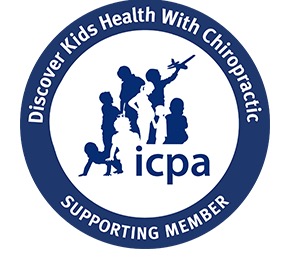Welcoming a newborn into the world is a joyous occasion, but the birthing process, while natural, can sometimes result in birth trauma for both mother and child.
Birth trauma refers to the physical stress and potential injuries experienced during labor and delivery. In the case of newborns, these traumas may lead to subtle yet impactful challenges that affect their well-being.
Because of their low immunity, most medicinal techniques are unsafe for newborns. Fortunately, chiropractic care is a non-invasive approach that can help resolve such problems and let babies grow up healthy and safe.
Let’s take a look at what birth trauma is, and how chiropractic care for newborns can help with birth trauma.
What is Birth Trauma?
As mentioned, birth trauma is the physical impact of the birthing process that affects both the mother and the child. There are three main types of birth trauma.
1. Physical Trauma
Physical trauma manifests as physical stress on the newborn’s body during delivery. This may include compression of the head or body as the baby navigates the birth canal, potentially leading to misalignments or tensions in the spine and musculoskeletal system.
2. Compression & Tension
The pressures exerted during labor and delivery can result in compression and tension in the baby’s delicate body. Compression may affect the spinal column, while tension can impact soft tissues. These stressors, if not addressed, may contribute to discomfort and impact the optimal functioning of the nervous system.
3. Birth Assistance Tools Impact
In some cases, medical interventions such as forceps or vacuum extraction may be employed to assist in the birthing process. While these tools are essential for ensuring a safe delivery, they can introduce additional stress to the newborn’s body, potentially causing misalignments or tensions that require attention.
Common Indicators of Birth Trauma in Newborns
Birth trauma is common, and most children heal from their injuries naturally. However, sometimes they need some extra help if the problem persists. Here are some signs that a child may be suffering from birth trauma.
Difficulty Breastfeeding
Birth trauma can affect the baby’s ability to breastfeed comfortably. Challenges such as difficulty latching, sucking, or maintaining a proper latch may arise, signaling potential issues related to birth trauma that require careful assessment.
Sleep Disturbances
Newborns who have experienced birth trauma may exhibit disturbances in their sleep patterns. Discomfort or tension resulting from the trauma can contribute to difficulty settling into restful sleep, impacting both the infant’s and parents’ well-being.
Irritability
Birth trauma may manifest in heightened irritability in newborns. The discomfort caused by misalignments or tension can contribute to general fussiness, making it crucial for parents and caregivers to recognize these signs and explore potential solutions.
The Role of the Spine in Newborns
The spine is a central and delicate component of a newborn’s anatomy, playing a vital role in facilitating overall growth and development. However, the spine of a newborn is notably fragile and susceptible to misalignments due to the stresses encountered during the birthing process.
The pliability of the infant spine, while essential for passage through the birth canal, also makes it susceptible to potential disturbances.
Birth trauma, whether from the pressure exerted during labor or interventions like forceps, can disrupt the natural alignment of the newborn’s spine. Misalignments, also known as subluxations, may occur, potentially affecting the proper functioning of the nervous system.
These misalignments can contribute to a range of issues, from discomfort to disruptions in sensory processing and motor function.
The spine serves as the primary conduit for the nervous system, a complex network that controls and coordinates bodily functions. Any misalignment in the spine can interfere with the proper transmission of nerve signals, impacting the newborn’s ability to adapt to their environment.
This is particularly crucial in the early stages of life when the nervous system is rapidly developing and laying the foundation for overall health.
How Chiropractic Care Can Help with Birth Trauma
Birth trauma can create subtle yet impactful challenges for newborns, affecting their overall well-being. Chiropractic care offers a gentle and holistic approach to address the consequences of birth trauma, providing relief and supporting the optimal development of the newborn.
Chiropractic Assessment in Newborns
Chiropractors employ specialized techniques to assess newborns for signs of birth trauma.
Through gentle and non-invasive methods, they carefully evaluate the baby’s spinal alignment, checking for any subluxations or tension that may have resulted from the birthing process. Early detection is key to addressing potential issues before they escalate.
Gentle Techniques for Assessment
Chiropractic assessment techniques for newborns are notably gentle, recognizing the delicate nature of the infant spine. These assessments involve subtle touches and observations to identify areas of tension, misalignment, or discomfort.
Chiropractors are trained to interpret the baby’s cues and responses to ensure a thorough and gentle evaluation.
Identification of Subluxations
In cases where subluxations or misalignments are detected, chiropractors can precisely identify these areas and develop a tailored care plan. Addressing subluxations early on is crucial for preventing long-term issues and supporting the newborn’s natural ability to adapt and grow.
Gentle Adjustments
Chiropractic adjustments for newborns are notably gentle and safe. Using specialized techniques, chiropractors apply light pressure to correct any identified subluxations. These adjustments aim to restore proper spinal alignment, alleviate tension, and promote optimal nervous system function.
Cranial Sacral Therapy
Cranial sacral therapy is a gentle chiropractic technique that focuses on the bones of the skull and spine. It aims to release tension in the craniosacral system, which can be particularly beneficial for newborns who may have experienced compression during birth.
This therapy contributes to a sense of relaxation and supports overall well-being.
Soft Tissue Techniques
Chiropractors may incorporate soft tissue techniques such as massage to address muscular tension resulting from birth trauma. These techniques help release tension in the muscles, promoting comfort and easing potential discomfort associated with the birthing process.
Benefits of Chiropractic Care for Newborns
Chiropractic care for newborns offers a range of benefits, including improved sleep patterns, enhanced breastfeeding experiences, and regulation of irritability. By addressing the consequences of birth trauma, chiropractors support the newborn’s natural resilience, fostering a healthy and comfortable start in life.
Experience Gentle Relief for Your Newborn at J & Co Chiropractic!
Has your newborn experienced birth trauma, affecting their sleep, comfort, or breastfeeding journey? Discover the gentle and effective solutions offered by J and Co Chiropractic.
Our experienced chiropractors specialize in providing personalized care for newborns, addressing birth trauma and fostering optimal development. Contact us now for more information!


